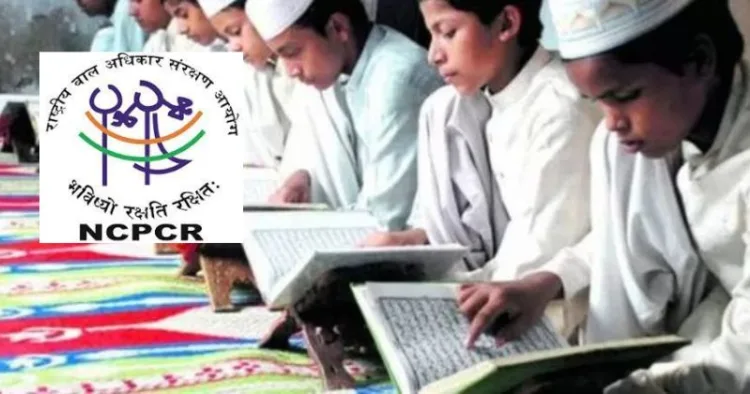NEW DELHI: The National Commission for Protection of Child Rights (NCPCR) on Wednesday filed an affidavit in the Supreme Court on a plea challenging Allahabad High Court’s March 22 judgment striking down ‘UP Board of Madarsa Education Act 2004’.
NCPCR says that the education imparted to children in Madrasa is not comprehensive, and is therefore against the provisions of Right to Education Act, 2009.
The Madrasa’s are infringing on children’s fundamental right to a good education by failing to provide these basic requirements. Children are denied not only a suitable education but also a healthy atmosphere and improved opportunities for growth, affidavit states.
Such institutes are also providing Islamic religious education to non-muslims which is further in violation of Article 28 (3) of the Constitution of India, the affidavit further says. It says that child getting education in such an institution will be devoid of basic knowledge of school curriculum which is provided in a school.
NCPCR further says in affidavit that Madrasas do not only render an unsatisfactory and insufficient model for education but also have an arbitrary mode of working which is wholly and in absence of a curriculum and evaluation procedure as laid down under Section 29 of the Right to Education Act, 2009.
According to the NCPCR, many children in the country attend Madrasas, however, they provide large religious teaching with very little participation in the national mainstream education system. NCPCR says several complaints have been received regarding the fatwas issued by Darul Uloom Deoband which runs a large number of Madarsas in the country.
Darul Uloom Deoband being an academic body of Islamic education and affiliating Madrasas across South Asia has been issuing fatwas which are exposing children to hatred against one’s own country and eventually causing them unnecessary mental and physical suffering, NCPCR’s affidavit states.
The Supreme Court on April 5 stayed the Allahabad High Court’s March 22 judgment striking down ‘UP Board of Madarsa Education Act 2004’ as unconstitutional and violative of secularism and fundamental rights.A bench of Chief Justice of India DY Chandrachud and Justices JB Pardiwala and Manoj Misra said finding of Allahabad High Court that the establishment of a Madarsa board breaches the principles of secularism may not be correct.The top court said the High Court judgement would affect the 17 lakh students, and it is of the view that direction of relocation of students to other school was not warranted.
The court said that if the concern was to ensure that the students of Madarsas receive quality education, the remedy would not lie in striking down the Madarsa Act but in issuing suitable directions to ensure that the students are not deprived of quality education. (With inputs from ANI)



















Comments